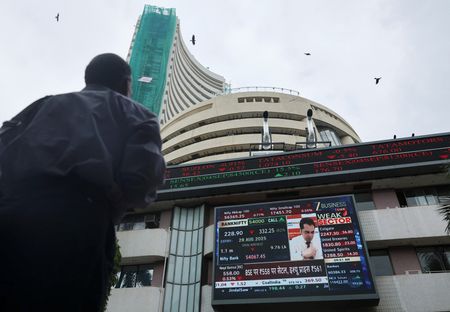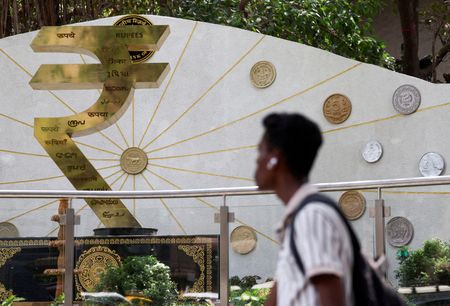By Nimesh Vora
MUMBAI (Reuters) -The Reserve Bank of India has stepped up its presence in the offshore non-deliverable forward (NDF) market to support the rupee, which has come under pressure from shifting demand-supply dynamics, bankers said on Monday.
Exporters have been holding back dollar sales, while importers are ramping up hedging in response to U.S. tariffs risks, contributing to rupee weakness, they added.
Reuters reported last month that the RBI had resumed intervention in the NDF market after a period of reduced activity.
Recent interventions have been visible during local trading hours, suggesting a more targeted approach to managing currency volatility, a senior treasury official at a private sector bank said.
The RBI did not immediately respond to an email seeking comment. The bankers spoke on condition of anonymity as they are not authorised to speak to the media.
The official said the RBI sold dollars in the NDF market last week when the rupee breached the 88.40 per dollar mark to hit a record low.
A currency trader at a Mumbai-based bank with an active NDF desk in Singapore said they saw the Bank for International Settlements appear on the offer side of dollar/rupee trades in the NDF market – a common proxy for central bank activity.
The rupee hit an all-time low of 88.4550 per dollar last week, reflecting stress from uneven flows. Importer hedging, spurred by tariff concerns, contrasts with exporter reluctance to sell dollars, adding to offshore pressure.
Bankers said the RBI was likely active in the onshore spot market as well.
The senior treasury official noted that the RBI’s current approach differs from the style under former Governor Shaktikanta Das, suggesting the central bank is “not married to a particular level” and is focused on maintaining orderly market conditions without over committing reserves.
Volatility measures indicate the strategy may be working. One-month implied volatility has dropped to a six-month low, pointing to well-anchored expectations.
(Reporting by Nimesh Vora; Editing by Eileen Soreng)











